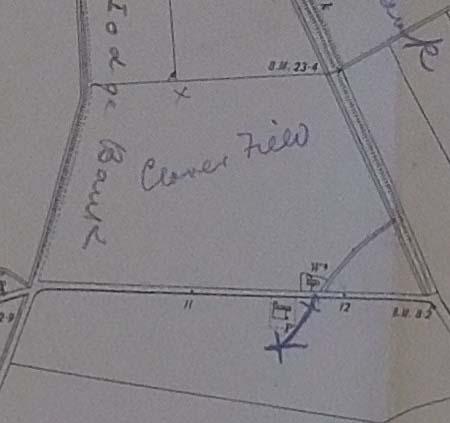

Age: 47
Sex: male
Crime: murder
Date Of Execution: 20 Nov 1907
Crime Location: Lutton Marsh, Lincolnshire
Execution Place: Lincoln
Method: hanging
Executioner: Henry Pierrepoint
Source: http://discovery.nationalarchives.gov.uk/
William Duddles was convicted of the murder of 36-year-old Catherine Gear and sentenced to death.
He battered her to death at Sutton Marsh, Lincolnshire on 8 October 1907.
William Duddles was a labourer and had lodged with Catherine Gear and her husband for about a year at their cottage in Lutton Marsh. The cottage was next to another cottage near a sea bank in the north of the county. A husband and wife lived in the other cottage and had two lodgers.
On the afternoon of Saturday 8 October 1907 William Duddles had been drinking beer in the cottage with Catherine Gear's husband and the two other lodgers from the cottage next door. At 5pm the party broke up and Catherine Gear's husband went off to the Ship Inn, about a mile away, to get some more beer whilst the two other men went back to their adjoining cottage for tea, leaving William Duddles and Catherine Gear alone.

It was not known whether they had a quarrel but William Duddles fetched a coal hammer from an outhouse and attacked Catherine Gear with it, completely smashing one side of her skull. He then left her for dead and then went off to the Ship Inn, taking the longer of two routes across a clover field so as to avoid Catherine Gear's husband who he had seen returning the shorter way. When he got to the Ship Inn he had more drink and was arrested there by the police two hours later.
Catherine Gear was found by her husband when he returned from the Ship Inn lying on the living room floor unconscious with the coal hammer lying nearby on the floor.
When William Duddles was arrested at about 7.35pm he was drunk and could scarcely walk alone. When he was charged he said 'I have been a bad un. I know, but I have been put on. I have not done wrong before, have I, now. I wish I was, well, dead. A still tongue makes a wise head. I shall say now't’.
It was heard that William Duddles and Catherine Gear frequently quarrelled and that William Duddles was often heard to call Catherine Gear a whore although it was noted that he often called other women the same thing. Also, it was heard that on one occasion in August 1907 Catherine Gear complained to her husband that William Duddles had tried to stab her which led to a quarrel although after the quarrel they made up. She said that he had run her down a dyke with a pocket knife and tried to stab her but that she had evaded him and got out of his way.
About two weeks before the murder William Duddles had gone to a neighbour’s house where he was heard to say, referring to Catherine Gear, 'I'll do for that bugger if I get hung for it'.
The day before the murder William Duddles had spoken to Catherine Gear's husband and again called her a whore for which Catherine Gear's husband struck William Duddles and they exchanged blows.

It was noted that on the day of the murder William Duddles was certainly under the influence of drink having had several drinks in the morning and after dinner drinking a gallon of beer between himself and the other three men. However, the evidence indicated that at the time of the murder he was not so drunk that he didn't know what he was about and it was noted that after the murder he had had sufficient intelligence to see Catherine Gear's husband approaching on one road and to go himself on another.
At his defence, he had claimed insanity. It was not suggested that he was a lunatic, but that he was a person of low intellect and that he had been drinking a good deal for two months and that he had drunk a good deal on the day of the murder, so much so that he was practically insane and incapable of knowing what he was doing. It was agreed that there was no doubt that he was a man of low intellect and bad character, but the evidence only showed that he was under the influence at the time and that there was nothing to indicate insanity.
He was sentenced to death, but with a recommendation to mercy. However, they gave no grounds for their recommendation and whilst it was noted that he had been under the influence of drink, it was shown that the murder had been a brutal one, committed by a man of violent temper who had previously made threats to the victim and it was not thought that there was sufficient reason to interfere with the course of the law and he was executed at Lincoln on 20 November 1907.
see National Archives - ASSI 13/37, HO 144/868/158695
see Sheffield Daily Telegraph - Thursday 10 October 1907